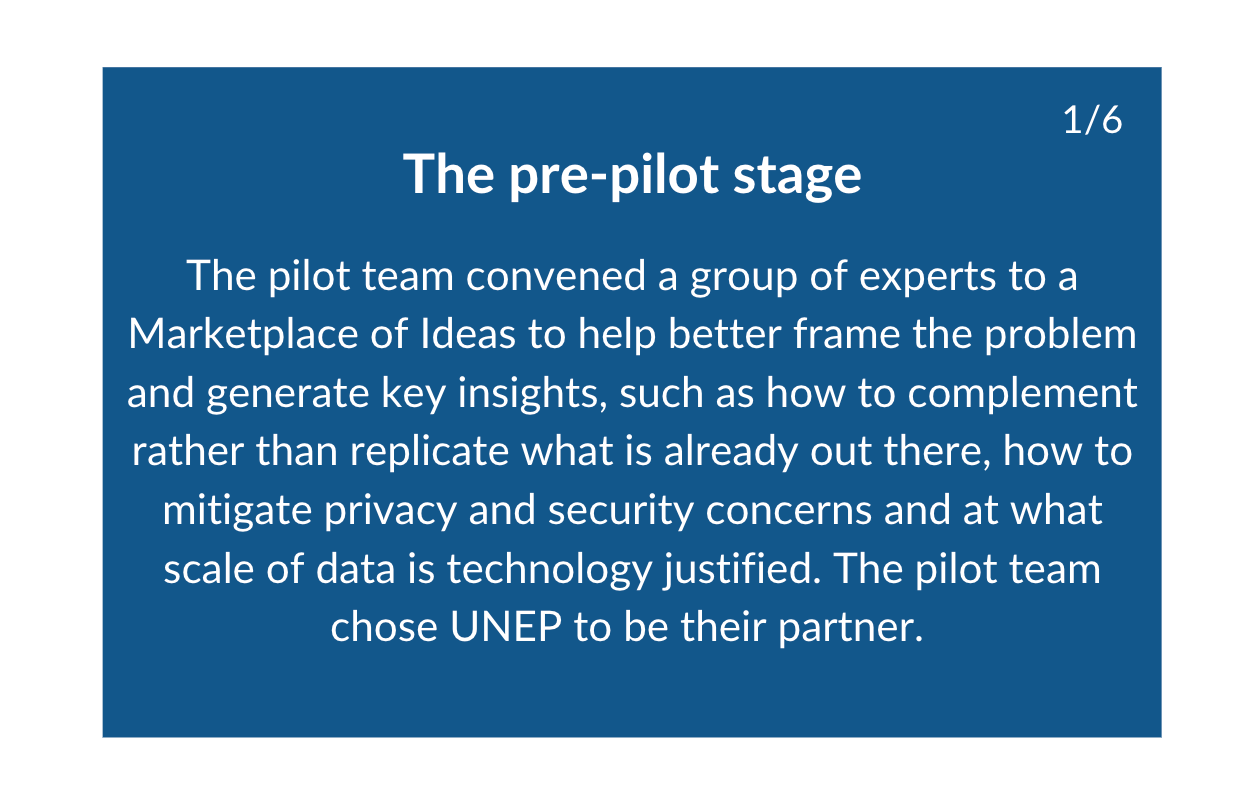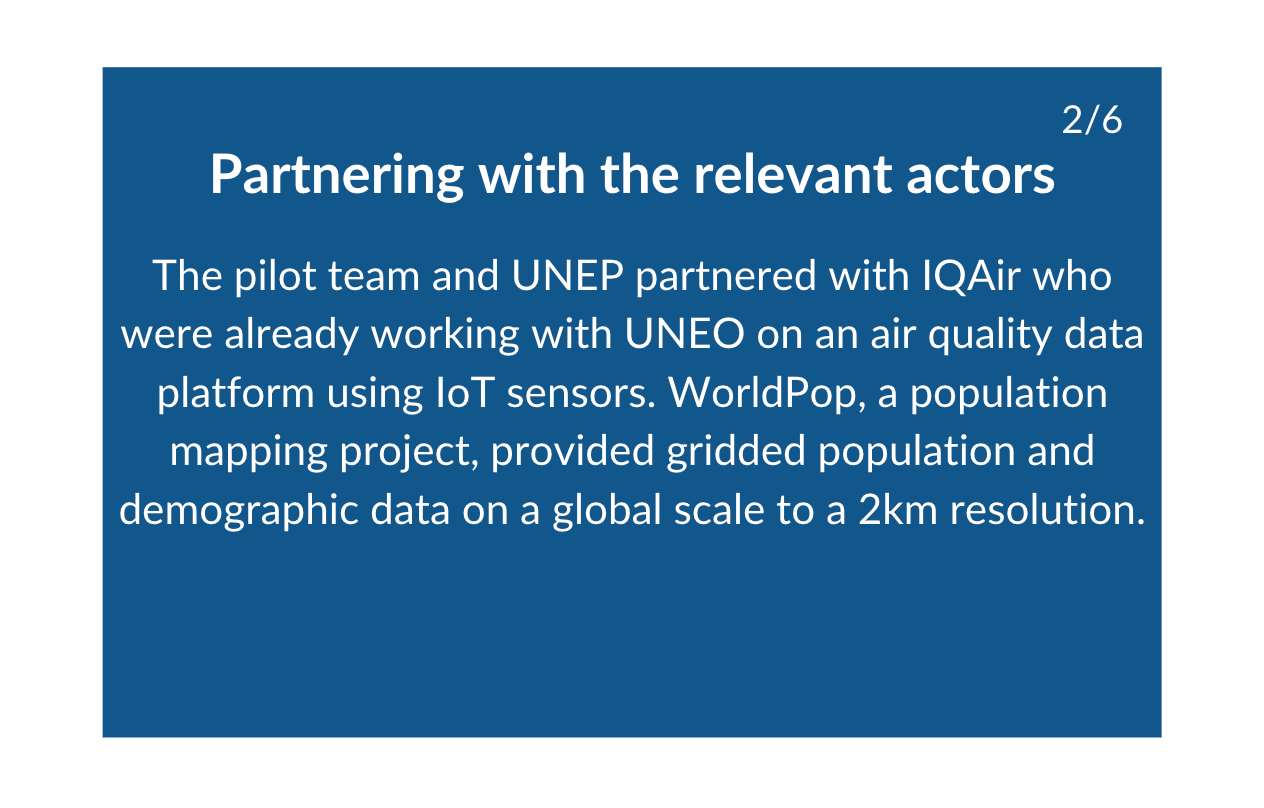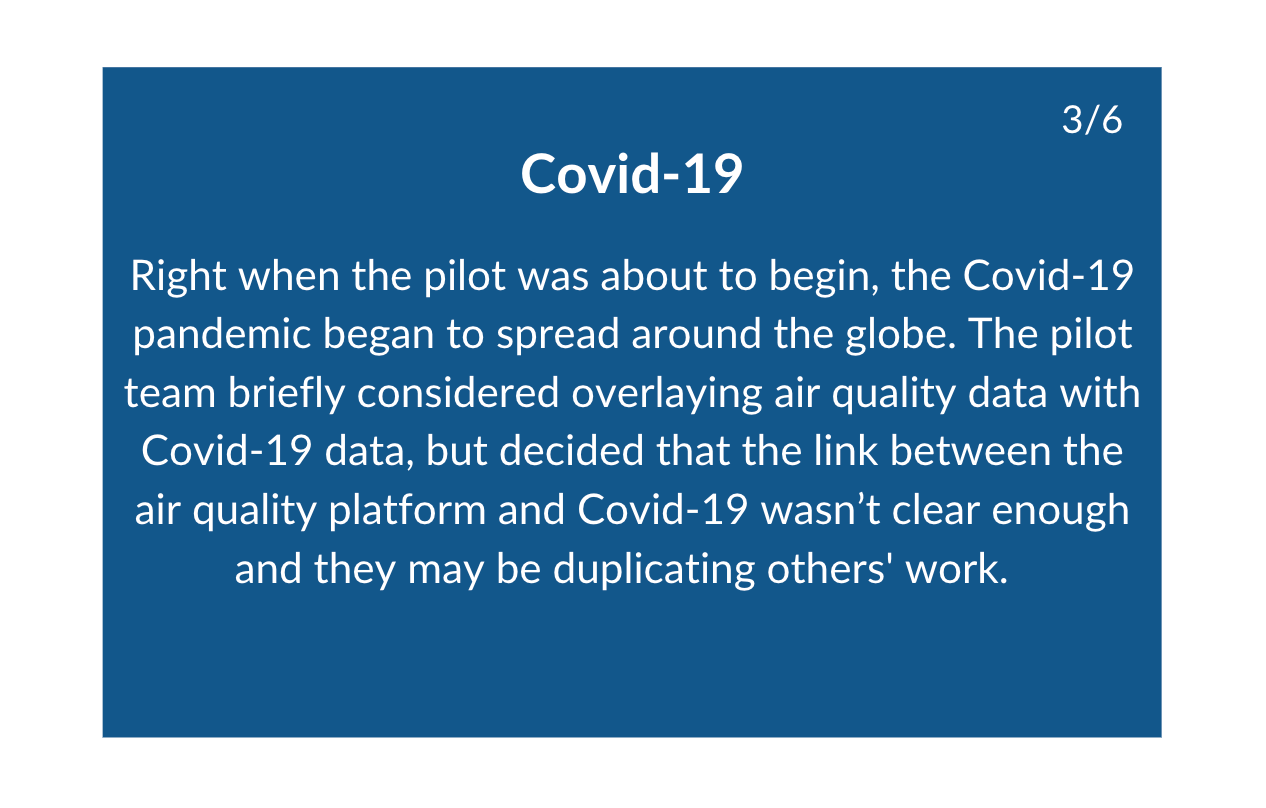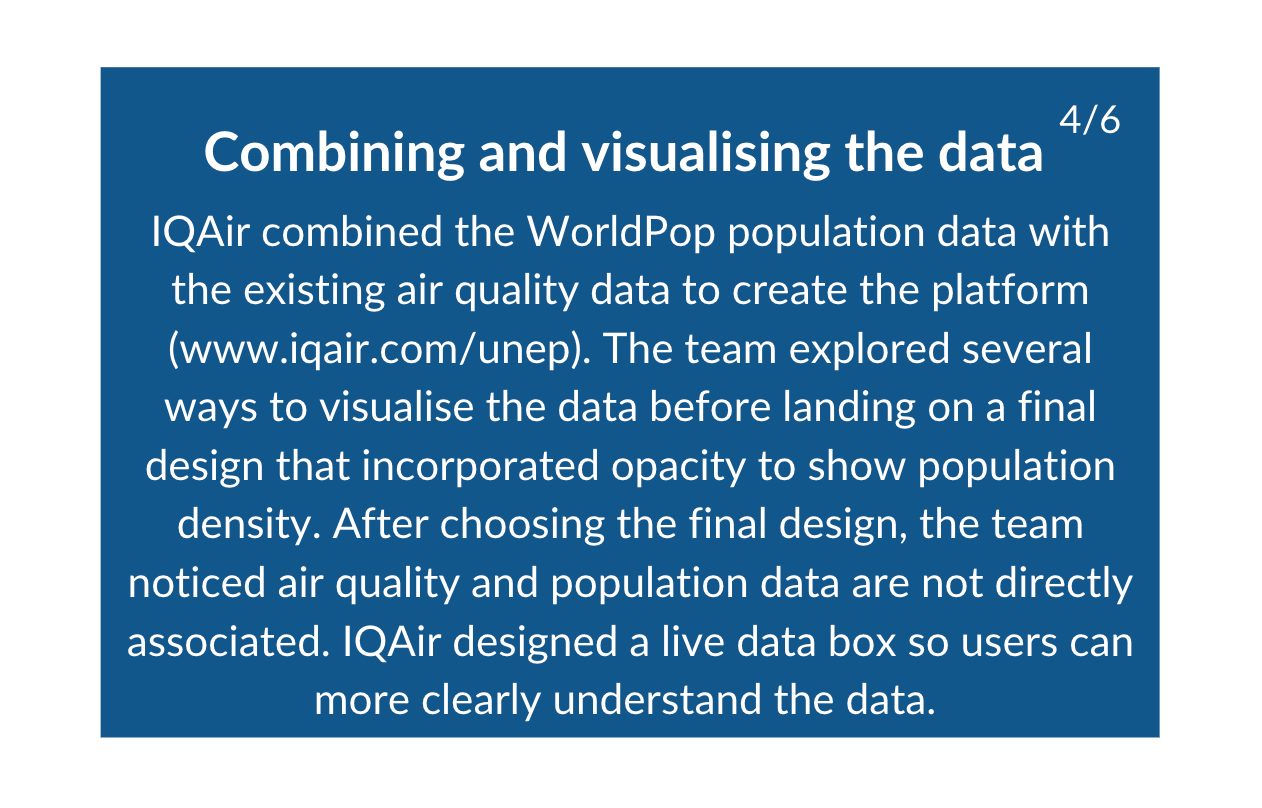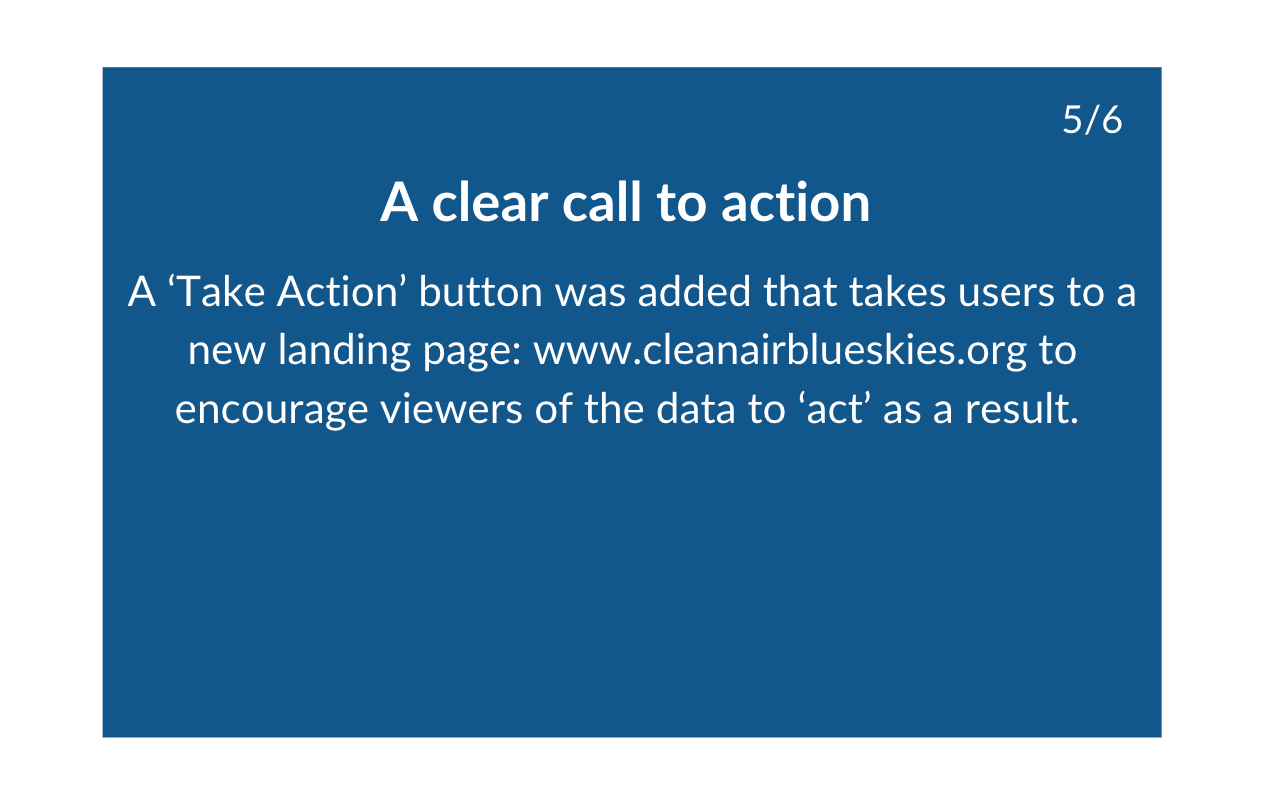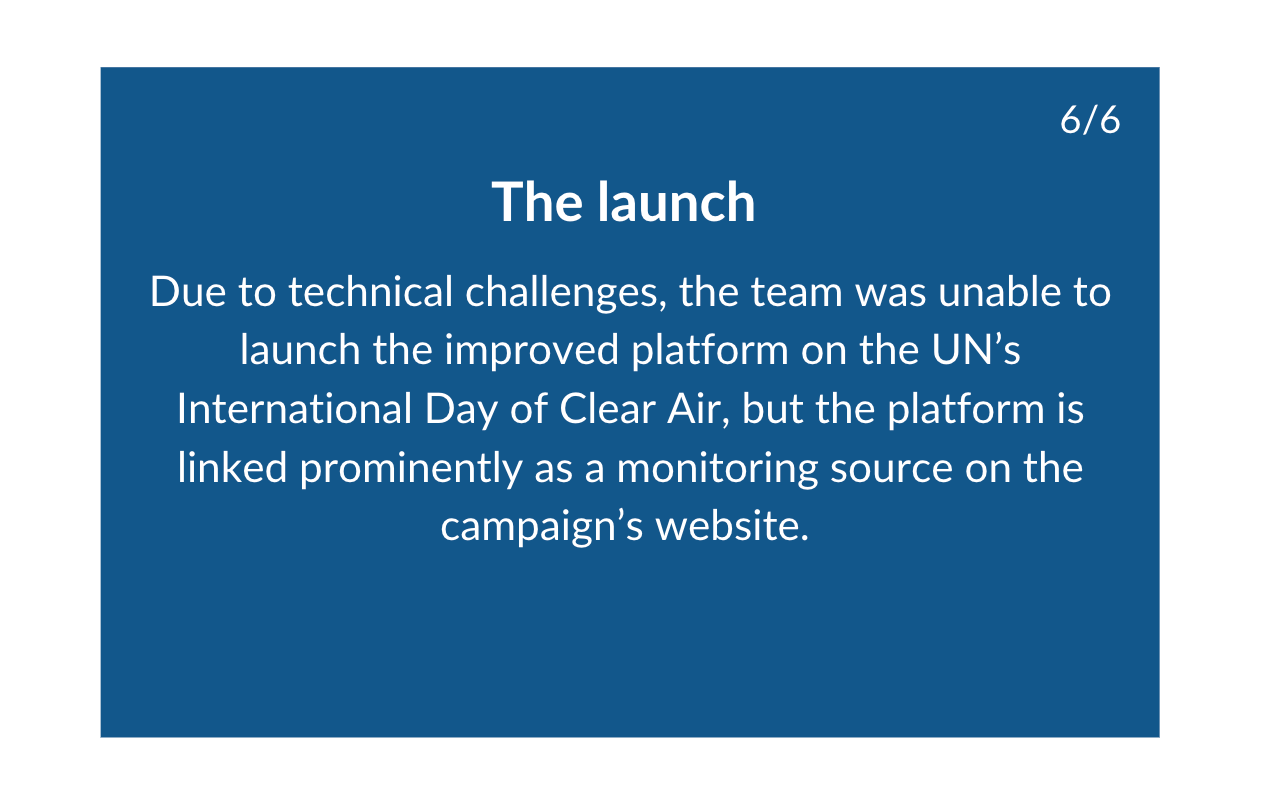Internet of Things (IoT) for an air quality data revolution
THE QUESTION
Can collecting air pollution data using IoT and sharing it with the world, influence stakeholders to improve air quality and encourage citizens to change behaviours?
LOCATION: Kenya
SECTOR: Climate and Environment
TECH: Internet of Things (IoT)
TIMELINE: February - October 2020
PIONEER: Rachael Beaven
PARTNERS: The United Nations Environment Programme, IQAir
The Challenge
To achieve the Sustainable Development Goals (SDGs) it is vital to have up-to-date and timely data to measure processes and make decisions to improve livelihoods. Unfortunately, this is often not the case. In fact, 68% of environment-related SDGs do not have sufficient data for tracking global progress.This is particularly important for air pollution, as the WHO estimates 7 million have died as a result of poor air quality. Whether the data is non-existent or inconsistent, it limits the ability of citizens and governments to take action to improve air quality.
The Idea
This pilot combined Internet of Things (IoT) connected sensors and population data to monitor air quality and exposure to visual and disseminate real time, accurate and consistent data to test if it could enhance citizen engagement, shift government policy and lead to positive actions to improve air quality.
The Journey
What we learned
While the original focus was on using IoT sensors, the final platform combined several types of technologies in a ‘tech stack’. We found that combining these technologies together has provided a richer dataset and greater learning than if only IoT sensors had been used.
The more localised the data, the more actionable. The most prominent feedback the team received from users (policy-makers and citizens) was that the platform didn’t tell them enough about air quality at a neighbourhood, city or country level, and therefore was limited in its utility. Although we knew this, it was more difficult than anticipated to present and visualise data on a small scale.
Read more
Explore the step-by-step journey and learnings of the pilot – Pilot Story
Explore the IQAir platform — World Population Real Time Exposure to Air Pollution
Read about UNEP’s International Day of Clean Air for Blue Skies — Take Action



